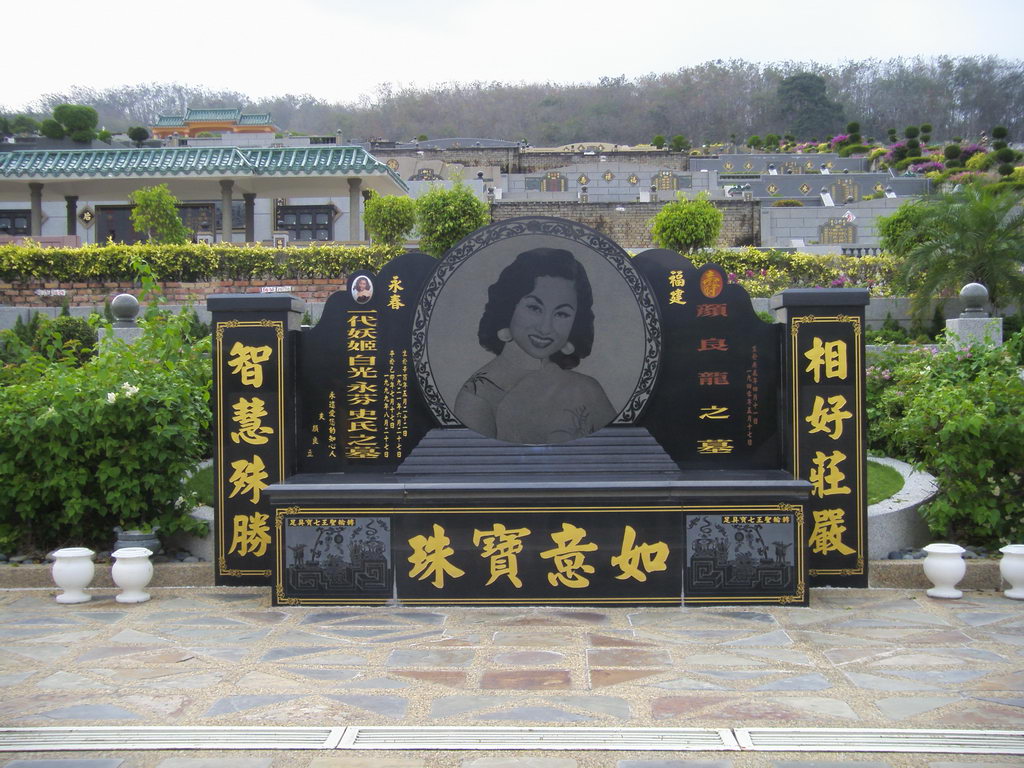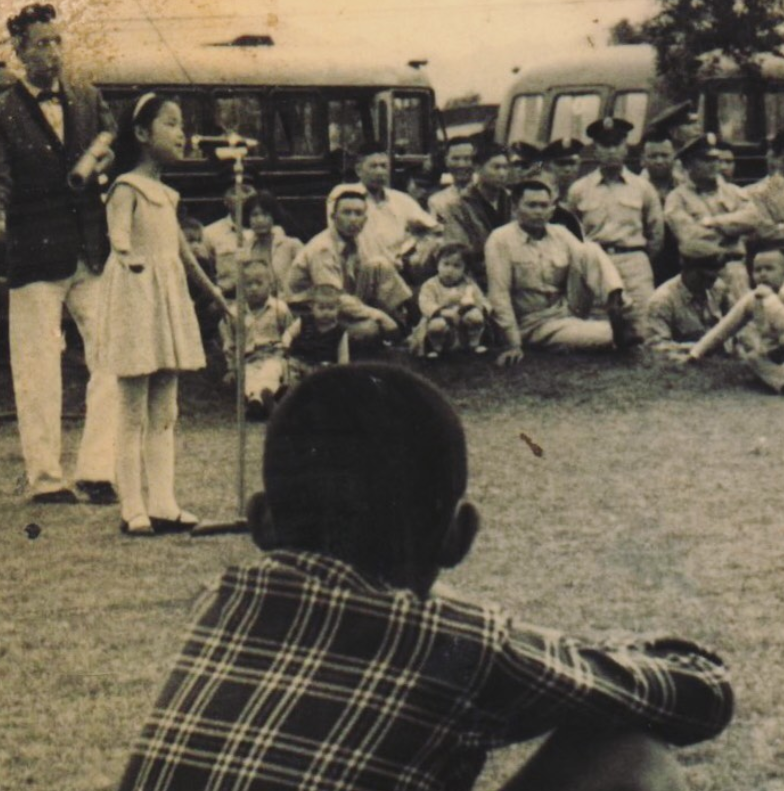|
Shidaiqu
Shidaiqu () is a type of Chinese popular music that is a fusion of Chinese folk, American jazz and Hollywood film music that originated in Shanghai, China in the 1920s.Shoesmith, Brian. Rossiter, Ned. 004(2004). Refashioning Pop Music in Asia: Cosmopolitan flows, political tempos and aesthetic Industries. Routeledge Publishing. Terminology The term ''shídàiqǔ'' literally means "songs of the era" in Mandarin. When sung in Cantonese, it is referred to as (, Jyut Jyu Si Doi Kuk). When sung in Amoy Hokkien, it is referred to as (). The term ''shidaiqu'' is thought to have been coined in Hong Kong to describe popular Chinese music that first emerged in Shanghai. Musicality Shidaiqu is a kind of fusion music that makes use of jazz musical instruments (castanets, maracas). Songs were sung in a high-pitched childlike style. This early style would soon be replaced by more sophisticated performances from better-trained singers. The songs of the period often use the ABA or ABCA fo ... [...More Info...] [...Related Items...] OR: [Wikipedia] [Google] [Baidu] |
Mandopop
Mandopop or Mandapop refers to Mandarin popular music. The genre has its origin in the jazz-influenced popular music of 1930s Shanghai known as Shidaiqu; with later influences coming from Japanese enka, Hong Kong's Cantopop, Taiwan's Hokkien pop, and in particular the Campus Song folk movement of the 1970s. 'Mandopop' may be used as a general term to describe popular songs performed in Mandarin. Though Mandopop predates Cantopop, the English term was coined around 1980 after " Cantopop" became a popular term for describing popular songs in Cantonese. "Mandopop" was used to describe Mandarin-language popular songs of that time, some of which were versions of Cantopop songs sung by the same singers with different lyrics to suit the different rhyme and tonal patterns of Mandarin. Mandopop is categorized as a subgenre of commercial Chinese-language music within C-pop. Popular music sung in Mandarin was the first variety of popular music in Chinese to establish itself as a via ... [...More Info...] [...Related Items...] OR: [Wikipedia] [Google] [Baidu] |
Bai Guang
Bai Guang (27 June 1921 – 27 August 1999), also credited as Pai Kwong, Bai Kwong and Bai Kwang, was a Chinese actress and singer. By the 1940s, she became one of the Seven great singing stars. Biography Bai Guang was born Shi Yongfen () in 1921 in Zhuozhou, Hebei. Her father was a quartermaster under general Shang Zhen. In her early years, she was a student of the Beiping Salon Theatrical Troupe (), and once performed Cao Yu's play ''"Sunrise"''. In 1937, she studied at the University of Tokyo's music department until World War II in 1942. After drama school, she wanted to be a movie star. As she proclaimed, she wanted to be like the beams of light coming off the movie projectors onto the big screen. Hence, her stage name was ''Bai Guang'' (), which translated to "White Light". Career Her mandopop songs were often used in many of her movies as soundtracks. In an age and culture where light, higher voices were usually favored, she had a slightly deep and hoarse voice, which ... [...More Info...] [...Related Items...] OR: [Wikipedia] [Google] [Baidu] |
Gong Qiuxia
Gong Qiuxia, also romanized as Kung Chiu-hsia (4 December 1918 – 7 September 2004) was a Chinese actress and singer. By the 1940s, she became one of the seven great singing stars.Baidu.Baidu" ''Gong Qiuxia.'' Retrieved on 28 April 2007. Biography In 1933, she traveled across Southeast Asia as a member of the Shanghai Plum Flower Troupe (). One of the theatrical plays she took part in was the Five Tiger Generals (). As a result of her training, she was an accomplished tap dancer. Her early films would capitalize on this talent as one of the few Chinese female stars who was a triple-threat (acting, singing, dancing). People would affectionately refer to her as an older Shirley Temple. In 1946, she moved to Hong Kong with her husband. They later moved to Taipei, Taiwan, in 1967. She died on 7 September 2004 in Hong Kong exactly ten years before fellow Seven great singing star Li Xianglan. Career In 1936, she made her first film (, ''Father Mother Son Daughter''). In 1937, she ... [...More Info...] [...Related Items...] OR: [Wikipedia] [Google] [Baidu] |
Shanghai Restoration Project
The Shanghai Restoration Project (SRP) is a Barcelona-based contemporary electronic music duo, consisting of Chinese American artists Dave Liang and Sun Yunfan. Background Producer Dave Liang was born in Lawrence, Kansas and grew up in Upstate New York. He started learning classical piano at an early age but transitioned towards jazz after hearing Miles Davis' "So What" in high school. He attended college at Harvard and upon graduation moved to NYC to work as a consultant. After work he would spend his evenings looking for jazz gigs at various bars. In 2003, Liang reconnected with his college classmate Ryan Leslie, who was working as a producer with Bad Boy Records. He quit his day job and began apprenticing with Leslie, "learning his way around drum machines and mixing desks and devouring a history of hip-hop that he had missed the first time around." He sold his first song to R&B singer Carl Thomas and soon created his own group, the Shanghai Restoration Project. Biograph ... [...More Info...] [...Related Items...] OR: [Wikipedia] [Google] [Baidu] |
Bai Hong
Bai Hong (, 24 February 1920 – 28 May 1992) was a Chinese actress and singer born Bai Lizhu () in Beijing. By the 1940s, she became one of the Seven Great Singing Stars.Baidu.Baidu" ''Bai Hong.'' Retrieved on 28 April 2007. Biography At age 11, Bai was admitted to the Bright Moonlight Song and Dance Troupe and entered Shanghai's entertainment industry. She used the stage name (), meaning "White Rainbow". She was called one of the "Beiping Three Whites" () with Bai Guang and Bai Yang. Career Her music career began at the young age of 11. She acted in her first film, ''Renjian Xianzi''《人間仙子》, at 14. In the 1930s, she was a popstar icon singing songs like . By 1934 a singing competition was sponsored in Shanghai, where she won by more than 200 votes taking the crown. She was known for having a mastery of the language and a clarity in expressing lyrics, which helped her gain many fans. In 1936 she toured Southeast Asia with the Bright Moonlight Song and Dance ... [...More Info...] [...Related Items...] OR: [Wikipedia] [Google] [Baidu] |
Zhou Xuan
Zhou Xuan (; born Su Pu (); August 1, 1920 – September 22, 1957), also romanized as Chow Hsuan, was an iconic Chinese singer and film actress. By the 1940s, she had become one of China's Seven Great Singing Stars. She was the best known of the seven, nicknamed the "Golden Voice", and had a concurrent movie career until 1954. She recorded more than 200 songs and appeared in over 40 films in her career. Early life Zhou was born Su Pu (), but was separated from her natural parents at a young age and raised by adoptive parents. She spent her entire life searching for her biological parents but her parentage was never established until after her death. According to later family research, a relative who was an opium addict took her at the age of 3 to another city and sold her to a family named Wang (surname), Wang, who named her Wang Xiaohong. She was later adopted by a family named Zhou (surname), Zhou, changing her name to Zhou Xiaohong. At the age of 13, she took Zhou Xuan ... [...More Info...] [...Related Items...] OR: [Wikipedia] [Google] [Baidu] |
Chinese Music
Music of China refers to the music of the Chinese people, which may be the music of the Han Chinese in the course of Chinese history as well as ethnic minorities in today's China. It also includes music produced by people of Chinese origin in some territories outside mainland China using traditional Chinese instruments or in the Chinese language. It includes forms from the traditional and modern, Western inspired, commercial popular music, folk, art, and classical forms, and innovative combinations of them. Documents and archaeological artifacts from early Chinese civilization show a well-developed musical culture as early as the Zhou dynasty (1122 BC – 256 BC) that set the tone for the continual development of Chinese musicology in following dynasties. These developed into a wide variety of forms through succeeding dynasties, producing the heritage that is part of the Chinese cultural landscape today. Traditional forms continued to evolve in the modern times, and over the c ... [...More Info...] [...Related Items...] OR: [Wikipedia] [Google] [Baidu] |
Shanghai, China
Shanghai (; , , Standard Mandarin pronunciation: ) is one of the four direct-administered municipalities of the People's Republic of China (PRC). The city is located on the southern estuary of the Yangtze River, with the Huangpu River flowing through it. With a population of 24.89 million as of 2021, Shanghai is the most populous urban area in China with 39,300,000 inhabitants living in the Shanghai metropolitan area, the second most populous city proper in the world (after Chongqing) and the only city in East Asia with a GDP greater than its corresponding capital. Shanghai ranks second among the administrative divisions of Mainland China in human development index (after Beijing). As of 2018, the Greater Shanghai metropolitan area was estimated to produce a gross metropolitan product ( nominal) of nearly 9.1 trillion RMB ($1.33 trillion), exceeding that of Mexico with GDP of $1.22 trillion, the 15th largest in the world. Shanghai is one of the world's major centers for f ... [...More Info...] [...Related Items...] OR: [Wikipedia] [Google] [Baidu] |
Ian Widgery
Ian or Iain is a name of Scottish Gaelic origin, derived from the Hebrew given name (Yohanan, ') and corresponding to the English name John (given name), John. The spelling Ian is an Anglicization of the Scottish Gaelic forename ''Iain''. It is a popular name in Scotland, where it originated, as well as other English-speaking world, English-speaking countries. The name has fallen out of the top 100 male baby names in the United Kingdom, having peaked in popularity as one of the top 10 names throughout the 1960s. In 1900, Ian was the 180th most popular male baby name in England and Wales. , the name has been in the top 100 in the United States every year since 1982, peaking at 65 in 2003. Other Gaelic forms of "John" include "Seonaidh" ("Johnny" from Scots language, Lowland Scots), "Seon" (from English), "Seathan", and "Seán" and "Eoin" (from Irish language, Irish). Its Welsh language, Welsh counterpart is Ioan (other), Ioan, its Cornish language, Cornish equivalent is Y ... [...More Info...] [...Related Items...] OR: [Wikipedia] [Google] [Baidu] |
Teresa Teng
Teng Li-Chun (; 29 January 1953 – 8 May 1995), commonly known as Teresa Teng, was a Taiwanese singer, actress, musician and philanthropist. Referred to by some as " Asia's eternal queen of pop," Teng became a cultural icon for her contributions to Mandopop, giving birth to the phrase, "Wherever there are Chinese people, there is the music of Teresa Teng," and is cited by many as one of the most successful Asian artists of all time. With a career spanning almost 30 years, Teng established herself as a dominant and influential force in Asia throughout most of her career, including East Asia, Southeast Asia, and, to some extent, South Asia. She is often hailed as Asia's first pop superstar and by some as the pioneer of contemporary Chinese pop music—a major force in the development of the Chinese music industry by incorporating western and eastern styles into her music, replacing the most revolutionary songs then prevalent in mainland China and laying the foundation for modern ... [...More Info...] [...Related Items...] OR: [Wikipedia] [Google] [Baidu] |
Cantopop
Cantopop (a contraction of "Cantonese pop music") or HK-pop (short for "Hong Kong pop music") is a genre of pop music written in standard Chinese and sung in Cantonese. Cantopop is also used to refer to the cultural context of its production and consumption. The genre began in the 1970s and became associated with Hong Kong popular music from the middle of the decade. Cantopop then reached its height of popularity in the 1980s and 1990s before slowly declining in the 2000s and experiencing a slight revival in the 2010s. The term "Cantopop" itself was coined in 1978 after "Cantorock", a term first used in 1974. In the eighties Cantopop has reached its highest glory with fanbase and concerts from allover the world, especially from Mainland China, Taiwan, Singapore, Malaysia, South Korea, and Japan. This is even more obvious with the influx of songs from Hong Kong movies during the time. Besides Western pop music, Cantopop is also influenced by other international genres, includi ... [...More Info...] [...Related Items...] OR: [Wikipedia] [Google] [Baidu] |
Hong Kong
Hong Kong ( (US) or (UK); , ), officially the Hong Kong Special Administrative Region of the People's Republic of China (abbr. Hong Kong SAR or HKSAR), is a city and special administrative region of China on the eastern Pearl River Delta in South China. With 7.5 million residents of various nationalities in a territory, Hong Kong is one of the most densely populated places in the world. Hong Kong is also a major global financial centre and one of the most developed cities in the world. Hong Kong was established as a colony of the British Empire after the Qing Empire ceded Hong Kong Island from Xin'an County at the end of the First Opium War in 1841 then again in 1842.. The colony expanded to the Kowloon Peninsula in 1860 after the Second Opium War and was further extended when Britain obtained a 99-year lease of the New Territories in 1898... British Hong Kong was occupied by Imperial Japan from 1941 to 1945 during World War II; British administration resumed after th ... [...More Info...] [...Related Items...] OR: [Wikipedia] [Google] [Baidu] |






